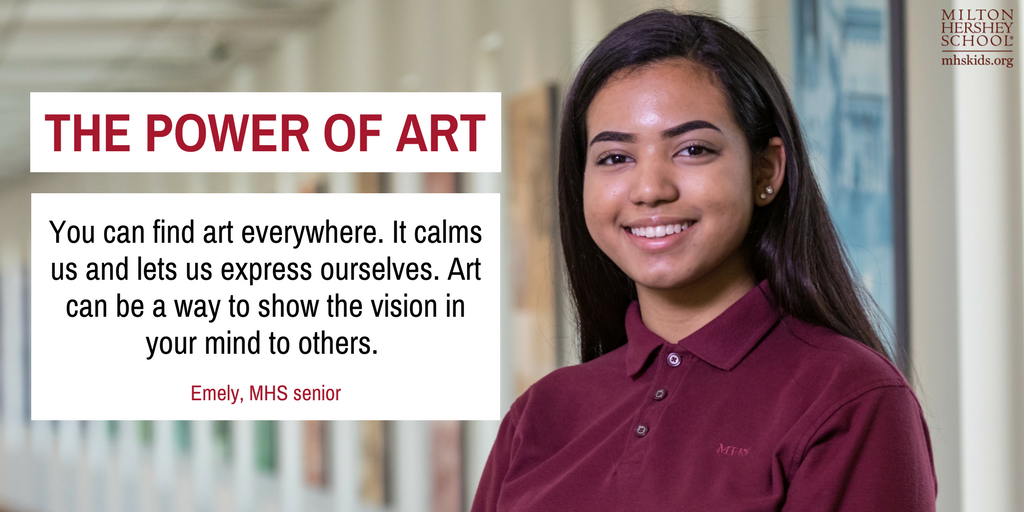The Power of Art
By Emely, a senior at MHS
Art is something I’ve always loved since I was a little girl. My dad is an artist and he was very dedicated to his paintings. He would spend all day painting and working on his artwork, and I would sit there watching and learning his techniques. Watching him draw and paint all the time helped me develop art skills quickly.
It also made me passionate about abstract art—an art style that breaks away from drawing exact representations of real life. I love this form of art because I like to draw what I feel and what I see. Because you don’t have to be a professional to do abstract art, I feel like you can just paint your heart away. Abstract art doesn’t have to be a specific thing—it can be the choice of your colors and shapes, and that’s the beauty of it.
It calms us and lets us express ourselves by using different colors and materials in whatever way we want—because art has no rules.
Art does so much to the world around us. You can find it everywhere. It’s involved in makeup, nails, cartoons, TV shows, graphics, billboards, and even food! Art can be a way to show the vision in your mind to others. For example, an architect has so many ideas on how they want a building to look but not everyone can see their exact vision. This makes their sketches and models, which I consider to be art, extremely important.
I am so thankful to have the opportunity to take Art Media classes and participate in the National Art Honor Society at Milton Hershey School. They allow me to do whatever kind of art I want and the school provides unlimited art materials. I’m proud to be in NAHS because it’s a society where I can be recognized for helping the community with what I love to do.
When people receive my artwork, it brings them a lot of joy and that makes me happy. This is what I call the power of art.


